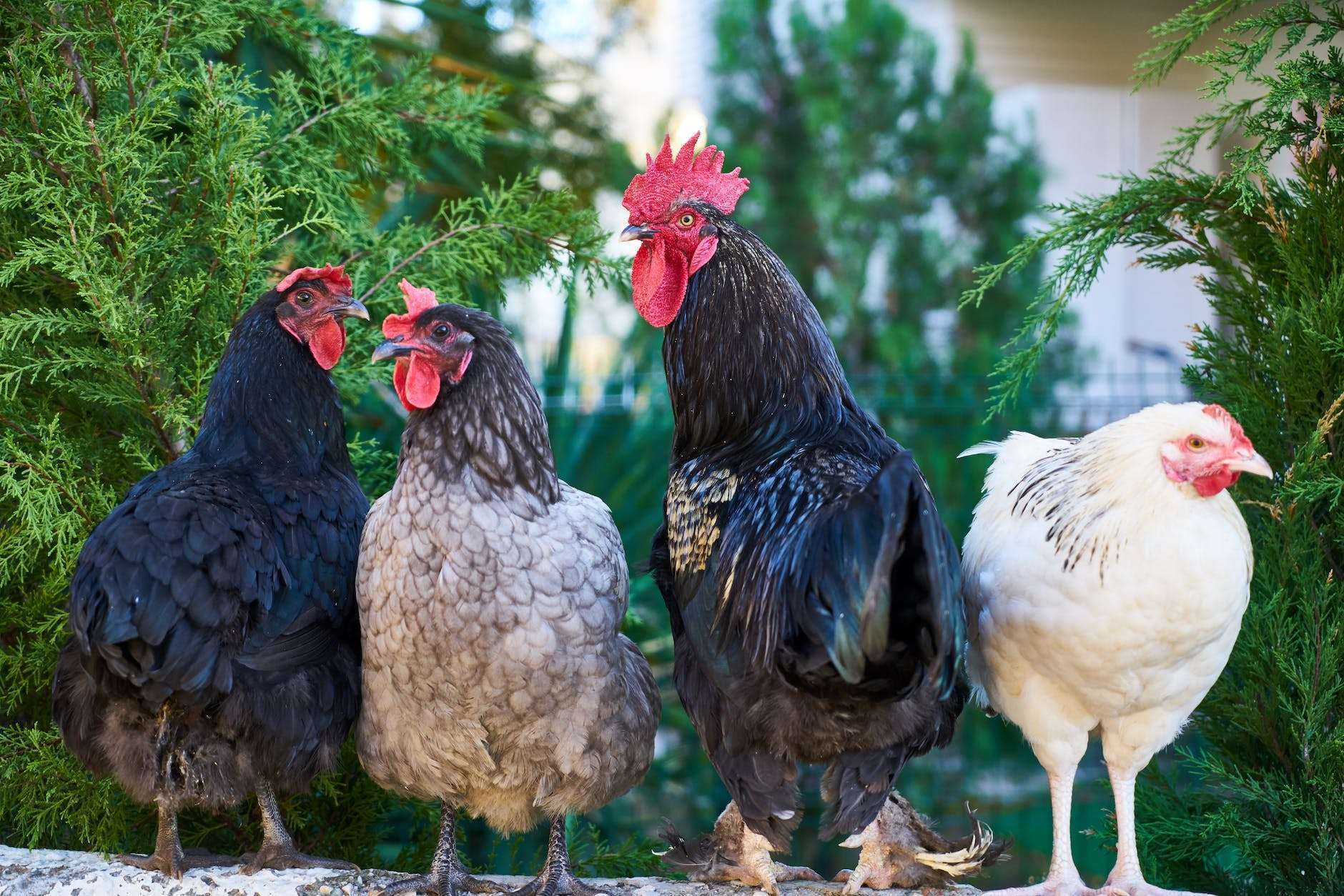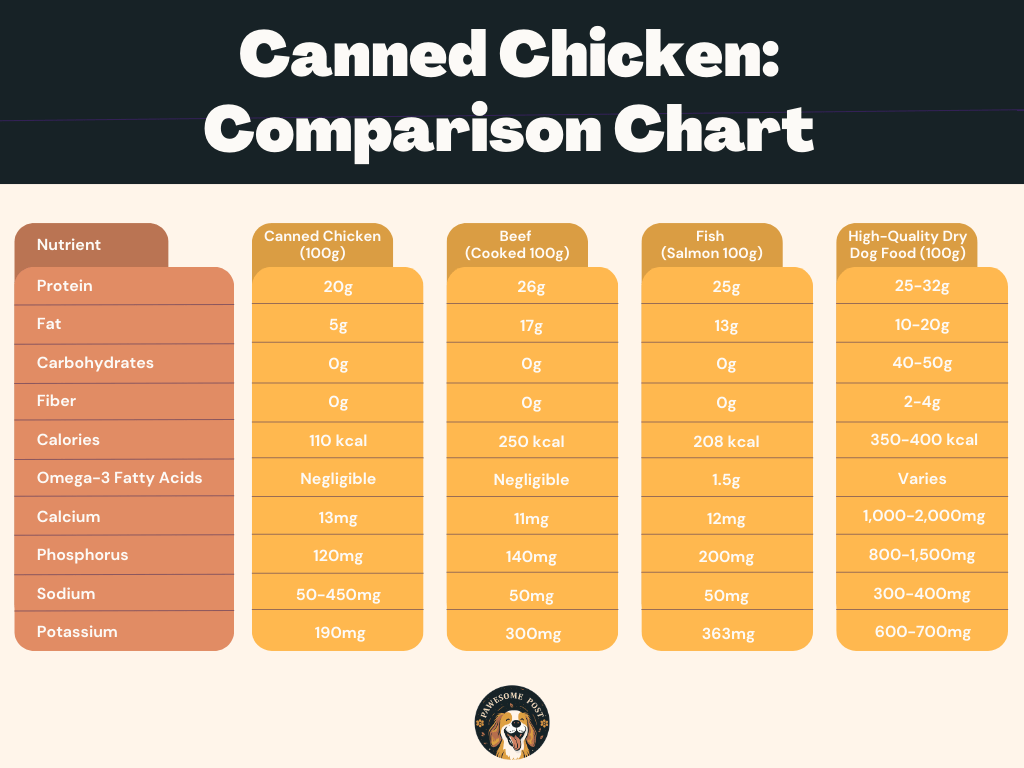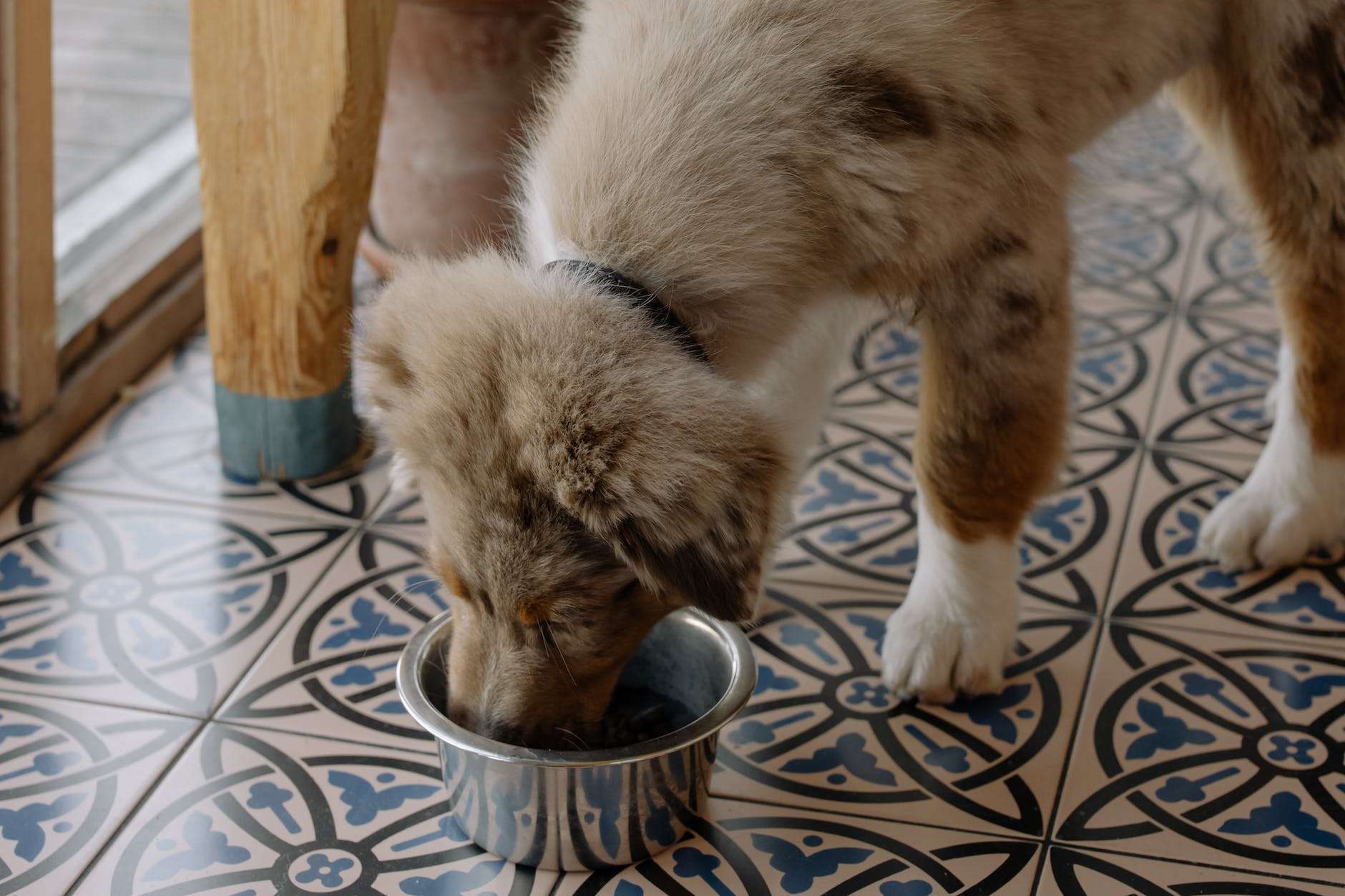When it comes to our beloved furry friends, we always want to make sure we are feeding them the right things. One question that often comes up is whether canned chicken is good for dogs. Let’s dive into this topic and explore whether canned chicken is a suitable addition to a dog’s diet.
1. Nutritional Value of Canned Chicken
Canned chicken can provide dogs with a good source of protein. Protein is essential for dogs as it helps support their muscle development, repair tissues, and promote a healthy immune system. Additionally, canned chicken typically has fewer carbohydrates compared to dry dog food, which can be beneficial for dogs with specific dietary needs.
2. The Importance of Moderation
While canned chicken can be a valuable addition to a dog’s diet, it should be given in moderation. Too much canned chicken can lead to an imbalance in a dog’s diet, as it lacks some essential nutrients found in complete and balanced dog food. It’s crucial to maintain a balanced diet for overall canine health.
3. Watch Out for Additives in Canned Chicken
When choosing canned chicken for your dog, it’s essential to read the labels carefully. Some canned chicken products may contain additives such as excess sodium, preservatives, or flavor enhancers, which can be harmful to dogs. Opt for plain, organic canned chicken without any additional seasoning or additives.

4. Proper Preparation: How to Safely Serve Canned Chicken to Your Dog
If you’ve decided to add canned chicken to your dog’s diet, it’s important to prepare it correctly to ensure it’s safe and as healthy as possible for your furry friend. Below are step-by-step instructions to guide you through the proper preparation of canned chicken for dogs.
1: Choose the Right Product
- Opt for canned chicken that is plain, without any added seasonings, sauces, or spices.
- Check the ingredient list to make sure there are no harmful additives, like excessive sodium or preservatives.
2: Measure the Right Portion
- Consult your veterinarian to determine the right portion size for your dog.
- As a rule of thumb, canned chicken should only make up a small part of a balanced canine diet.
3: Drain and Rinse
- Open the canned chicken and drain off any liquid.
- Rinse the chicken under cold running water for about a minute to remove excess sodium and preservatives.
4: Inspect for Bones
- Carefully inspect the chicken to ensure there are no small bones or bone fragments, as these could pose a choking hazard.
5: Shred or Chop
- Shred or chop the chicken into small, bite-sized pieces appropriate for your dog’s size. Smaller dogs will need smaller pieces, while larger dogs can handle larger pieces.
6: Mix with Other Food (Optional)
- If you’re using the canned chicken as a supplement rather than a main meal, consider mixing it with your dog’s regular dry or wet food.
7: Serve and Observe
- Serve the prepared canned chicken to your dog.
- Watch them as they eat to make sure they are chewing properly and not experiencing any issues.
8: Storage
- Store any unused portion in an airtight container in the refrigerator. Use within 3 days for maximum freshness.
Caution:
Always consult with your veterinarian before making any significant changes to your dog’s diet, especially if they have health conditions or special dietary needs.
5. Veterinary Guidance for Feeding Canned Chicken
As with any dietary changes, it’s always a good idea to consult your veterinarian before introducing canned chicken or any new food into your dog’s diet. They can provide personalized advice based on your dog’s specific needs, health condition, and dietary requirements. If you’re considering adding canned chicken to your dog’s diet, here are some common questions you might want to ask your vet:
- Is canned chicken an appropriate protein source for my dog’s specific needs?
- How much canned chicken can I safely add to my dog’s diet?
- Are there any specific brands or types of canned chicken that you would recommend?
- Can canned chicken replace a meal or should it only be used as a supplement?
- What are the potential risks or side effects I should watch for?
- Are there any specific nutrients in canned chicken that could be beneficial or harmful to my dog?
- My dog has [specific health condition]. Is canned chicken advisable in this case?
- How should I transition my dog to a diet that includes canned chicken?
- How often should I feed my dog canned chicken?
- Can I mix canned chicken with my dog’s medication or supplements?
By asking these questions, you can make informed decisions that align with your pet’s specific dietary needs and health conditions.

6. Consider Your Dog’s Individual Needs
When determining whether canned chicken is good for your dog, it’s crucial to consider their individual needs and health conditions. Some dogs may have specific dietary requirements or allergies that need to be taken into account. For example, if your dog has kidney or heart issues, your veterinarian might advise against feeding them canned chicken due to its potential sodium content.
Additionally, if your dog is prone to gastrointestinal issues or sensitivities, introducing canned chicken should be done with caution. Some dogs may have difficulty digesting canned meats, leading to digestive upset. It’s important to monitor your dog’s response to canned chicken and make adjustments accordingly.
7. Supplementing You Dog’s Diet with Canned Chicken
Canned chicken can be a useful supplement to a dog’s regular diet in certain situations. For instance, if your dog is a picky eater or recovering from an illness, adding a small amount of canned chicken to their food can entice them to eat and provide additional nourishment. Similarly, if you need to administer medication to your dog, using a small amount of canned chicken as a “pill pocket” can make the process easier and more enjoyable for your furry friend.
However, it’s essential to maintain balance and not rely solely on canned chicken as a primary source of nutrition for your dog. It should complement a well-rounded diet consisting of high-quality dog food that meets their nutritional requirements.
8. Canned Chicken Compared to Other Proteins
One important aspect to consider when contemplating adding canned chicken to your dog’s diet is how it compares nutritionally with other common protein sources. To help you make an informed decision, we’ve put together a nutritional comparison chart that pits canned chicken against beef, salmon, and high-quality dry dog food.
How to Read the Table
- Nutrient: This column lists the nutrients commonly considered when assessing the quality of a protein source for dogs.
- Per 100g: The nutritional values are estimated per 100 grams of the protein source. This allows for a straightforward comparison between different types of foods.
- Varies: When you see ‘varies’ listed, it means the amount of that particular nutrient can differ significantly between brands or specific cuts.
Here are some points to consider while interpreting the table:
- Protein: Essential for muscle development and overall growth.
- Fat: Needed for energy but should be given in moderation, especially saturated fats.
- Carbohydrates: Not an essential nutrient for dogs but is often present in commercial dog foods.
- Fiber: Important for digestive health but generally not present in meat sources.
- Calories: For understanding the energy content; more active dogs may require more calories.
- Omega-3 Fatty Acids: Beneficial for skin and coat health, among other things.
- Calcium & Phosphorus: Important for bone health.
- Sodium & Potassium: Electrolytes that are necessary but should be moderated, especially in dogs with certain health conditions.
Please note that the values in the table are general estimates and can vary based on the brand, cut, and preparation method. Always consult with a veterinarian to determine the specific nutritional needs of your dog.

9. Recipe Ideas: Simple and Nutritious Meals and Treats Using Canned Chicken for Dogs
If you’ve decided that canned chicken would be a good addition to your dog’s diet, you might be wondering how to serve it in a way that is both enjoyable and nutritious for your furry friend. To help you out, we’ve come up with some simple recipe ideas that use canned chicken as a key ingredient. These recipes are designed to be dog-friendly, easy to prepare, and highly delicious—at least, according to our canine taste-testers!
1. Chicken and Rice Doggie Dinner
Ingredients:
- 1 cup of cooked brown rice
- 1 cup of canned chicken, rinsed and drained
- 1 cup of mixed vegetables (e.g., carrots, peas, green beans), cooked
Instructions:
- Mix the cooked brown rice, canned chicken, and cooked vegetables in a large bowl.
- Ensure the mixture is cool before serving it to your dog.
- Store leftovers in an airtight container in the refrigerator for up to 3 days.
2. Chicken and Sweet Potato Dog Treats
Ingredients:
- 1 cup of canned chicken, rinsed and drained
- 1 medium sweet potato, cooked and mashed
- 1 egg
- 1 cup of oat flour
Instructions:
- Preheat the oven to 350°F (175°C).
- In a large bowl, combine the canned chicken, mashed sweet potato, egg, and oat flour.
- Create small, bite-sized balls or use cookie cutters to make shapes.
- Place them on a lined baking sheet and bake for 20-25 minutes or until firm.
- Allow to cool before serving.
3. Chicken and Pumpkin Doggy Smoothie
Ingredients:
- 1 cup of canned chicken, rinsed and drained
- 1/2 cup of canned pumpkin puree (not pumpkin pie filling)
- 1 cup of plain, unsweetened yogurt
Instructions:
- Place all ingredients in a blender.
- Blend until smooth.
- Serve the smoothie in your dog’s bowl or use a silicone mold to freeze it into treats for a hot day.
Note:
These recipes are intended as treats or supplements to your dog’s regular diet and should not replace a balanced meal. Always consult your veterinarian before making any significant changes to your pet’s diet, especially if they have specific health conditions or dietary requirements.

Frequently Asked Questions about Canned Chicken for Dogs
1. Can dogs eat canned chicken everyday?
While canned chicken can be a healthy addition to a dog’s diet, it’s not recommended to feed it to them every day. Dogs require a balanced and varied diet to meet all their nutritional needs. Providing them with a variety of protein sources, including lean meats, fish, and high-quality dog food, is essential for their overall health.
2. Can I feed my dog canned chicken as their main source of protein?
Canned chicken should not be the sole source of protein for your dog. While it can be a nutritious protein option, it lacks certain essential nutrients that are necessary for a complete and balanced diet. It’s best to combine canned chicken with a high-quality dog food that is formulated to meet their specific nutritional requirements.
3. Are there any risks associated with feeding dogs canned chicken?
Feeding dogs canned chicken in moderation and without any added seasonings or additives should not pose any significant risks. However, it’s important to be aware of potential allergens that may be present in canned chicken. If your dog has any known allergies or sensitivities, always check the ingredients and consult with your veterinarian before offering them canned chicken.
4. Can canned chicken cause digestive issues in dogs?
While canned chicken is generally safe for dogs to consume, some dogs may experience digestive issues if they consume large quantities or have a sensitive stomach. To prevent digestive issues, it’s crucial to introduce canned chicken gradually into your dog’s diet and monitor their reactions. If you notice any vomiting, diarrhea, or other signs of discomfort, consult with your veterinarian.
5. Can I use canned chicken as a treat or training reward for my dog?
Yes, canned chicken can be a tasty and convenient treat or training reward for your dog. However, it’s important to adjust their overall diet accordingly to account for the additional calories and nutrients they may be getting from the canned chicken. It’s always best to use treats in moderation and ensure they don’t make up a significant portion of your dog’s daily caloric intake.
6. Can dogs eat canned chicken breast in water?
Absolutely, dogs can eat canned chicken breast in water as long as there are no additives; it’s generally considered safe for most dogs when fed in moderation. This form of chicken is often a convenient option for dog owners, especially when you’re in a hurry or run out of fresh meat. Canned chicken breast in water typically contains fewer seasonings and additives compared to those canned in broth or oil, making it a better choice for dogs.
Remember, every dog is unique, and their dietary needs may vary. It’s always recommended to consult with your veterinarian for personalized advice and guidance on the best diet for your furry friend.





